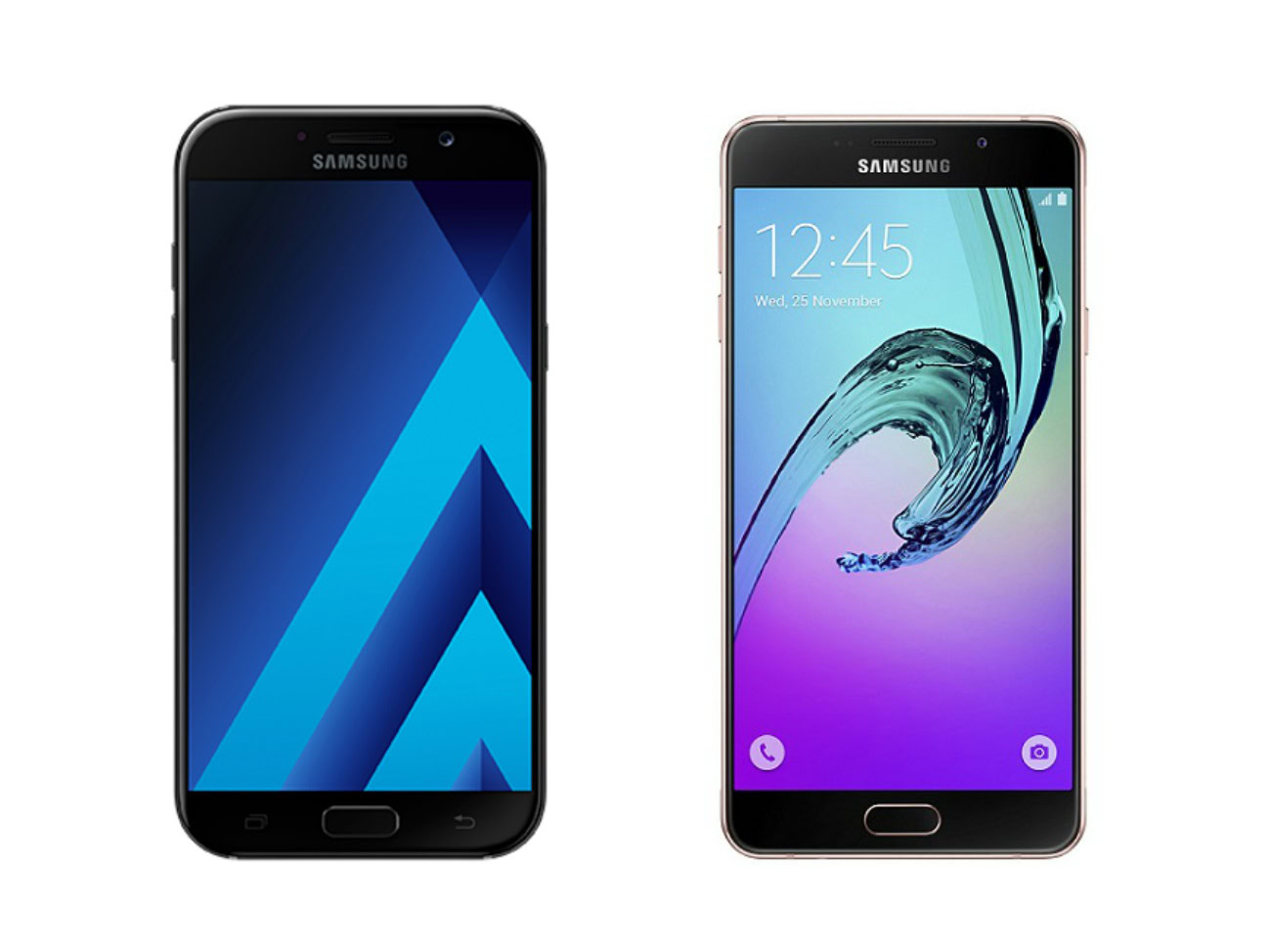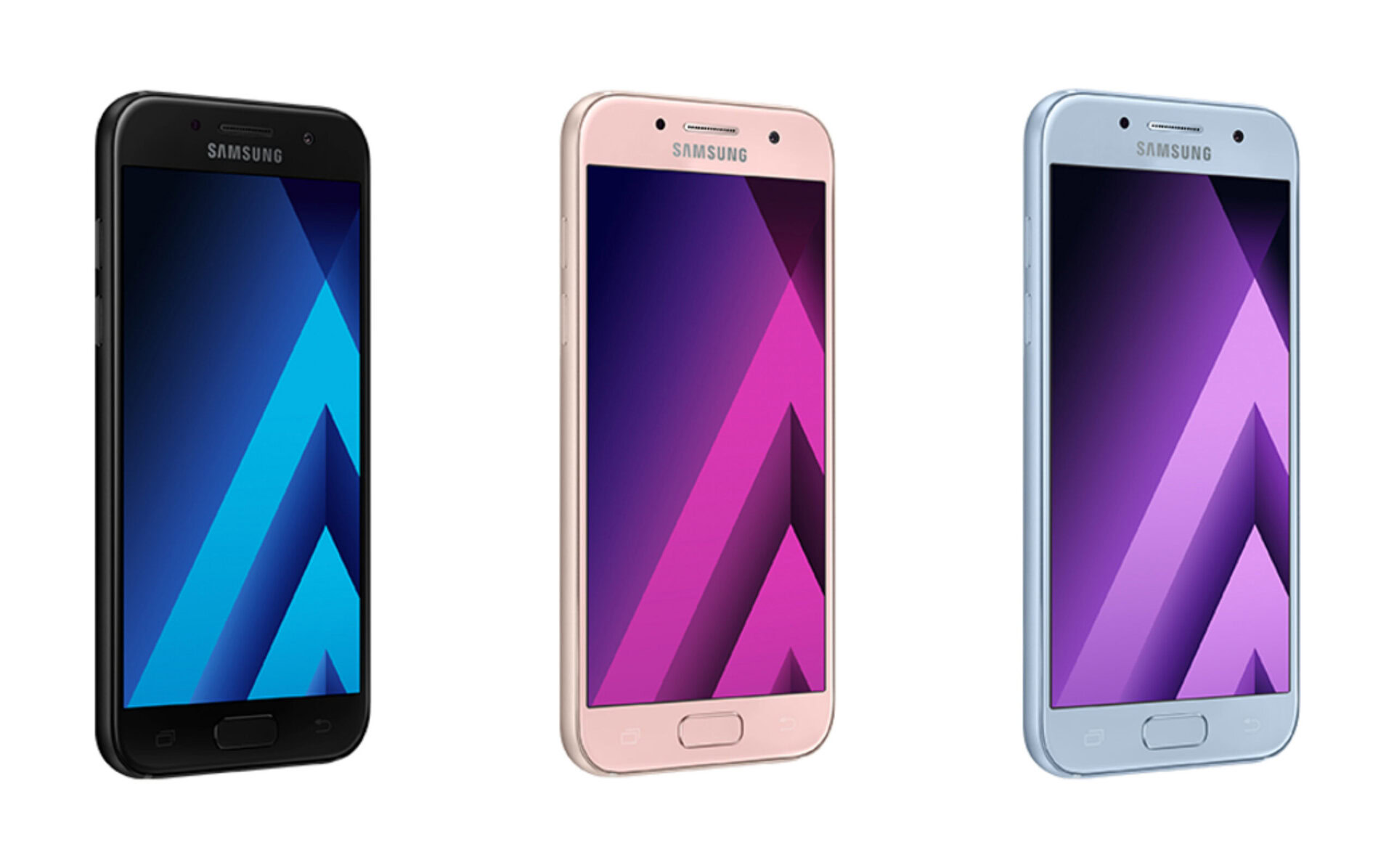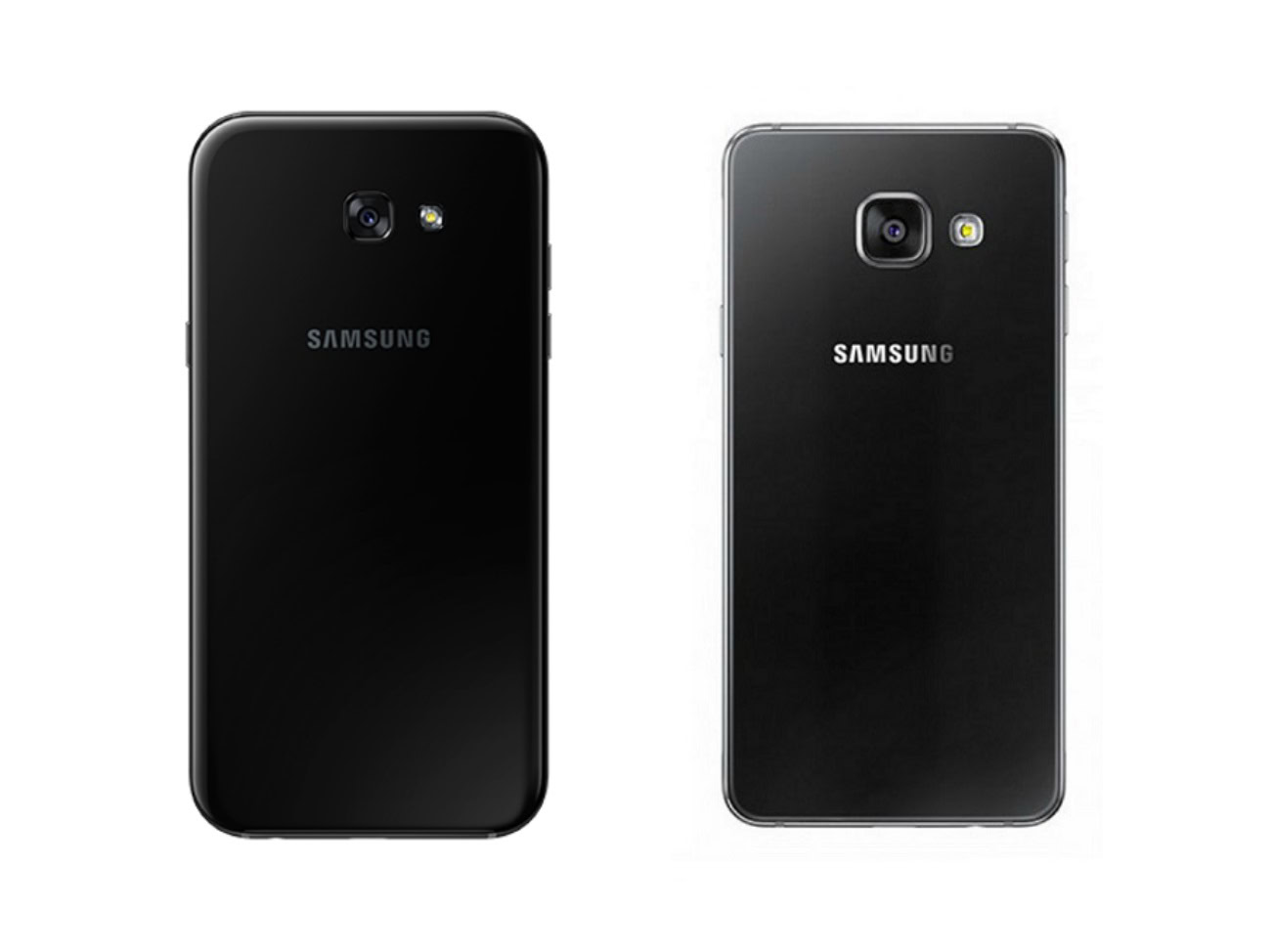Affiliate links on Android Authority may earn us a commission. Learn more.
Samsung Galaxy A7 (2017) vs Samsung Galaxy A7 (2016) specs comparison
Published onJanuary 2, 2017

Samsung revealed its 2017 editions of the Galaxy A series in a press release earlier today. The news arrives just ahead of CES 2017 in Las Vegas, meaning there’s a chance we’ll get to go hands-on with them at the show. Until then, here’s a quick look at how the new Galaxy A7 — the high-end model of the series — compares to its 2016 counterpart.
The design of the two devices, while similar, differ in their shape: the Galaxy A7 featuring more pronounced curves on the edges and on the rear thanks to its 3D glass design. Further, the design of the Galaxy A7 (2017) also affords water and dust resistance with IP68 certification, and has a slightly larger display at 5.7-inches compared to 5.5-inches. Otherwise, the overall approach of the two is almost identical, with the buttons and sensors appearing in the same positions.

In terms of hardware components, the Galaxy A7 (2017) features improvements in almost every area. The processor, RAM, internal storage and battery all deliver some form of upgrade, but it’s the leap from 5 MP to 16 MP for the front-facing camera that may represent the most noticeable change.
The Galaxy A (2017) also benefits from USB-Type C connectivity, for faster charging and data transfer speeds, as well as an Always On display like the Galaxy S7 and Galaxy S7 Edge.

| Samsung Galaxy A7 (2017) | Samsung Galaxy A7 (2016) | |
|---|---|---|
Display | Samsung Galaxy A7 (2017) 5.7-inch Full HD Super AMOLED, 386ppi, Corning Gorilla Glass 4, Always On Display | Samsung Galaxy A7 (2016) 5.5-inch Full HD Super AMOLED, 424ppi, Corning Gorilla Glass 4 |
Processor | Samsung Galaxy A7 (2017) Exynos 7880 Octa, 1.9 GHz octa-core | Samsung Galaxy A7 (2016) Exynos 7580 Octa, 1.6 GHz octa-core |
GPU | Samsung Galaxy A7 (2017) Mali-T830MP3 | Samsung Galaxy A7 (2016) Mali-T720MP2 |
RAM | Samsung Galaxy A7 (2017) 3 GB | Samsung Galaxy A7 (2016) 2 GB |
Storage | Samsung Galaxy A7 (2017) 32 GB | Samsung Galaxy A7 (2016) 16 GB |
Software | Samsung Galaxy A7 (2017) Android 6.0.1 Marshmallow | Samsung Galaxy A7 (2016) Android 5.1.1 Lollipop |
MicroSD | Samsung Galaxy A7 (2017) Yes, up to 256 GB | Samsung Galaxy A7 (2016) Yes, up to 128 GB |
Rear camera | Samsung Galaxy A7 (2017) 16 MP CMOS, f/1.9, autofocus, OIS, 1080p video recording, | Samsung Galaxy A7 (2016) 13 MP CMOS, f/1.9, autofocus, OIS, 1080p video recording |
Front camera | Samsung Galaxy A7 (2017) 16 MP, f/1.9 aperture, 1080p video recording | Samsung Galaxy A7 (2016) 5 MP, f/1.9 aperture, 1080p video recording |
Fingerprint sensor | Samsung Galaxy A7 (2017) Yes | Samsung Galaxy A7 (2016) Yes |
Battery | Samsung Galaxy A7 (2017) 3,600 mAh, fast charging, USB Type-C | Samsung Galaxy A7 (2016) 3,300 mAh, fast charging, microUSB v2.0 |
Connectivity | Samsung Galaxy A7 (2017) Dual-SIM, LTE, FM Radio, dual-band Wi-Fi a/b/g/n/ac, Wi-Fi Direct, Bluetooth v4.2, GPS | Samsung Galaxy A7 (2016) Dual-SIM, LTE, FM Radio, dual-band Wi-Fi a/b/g/n, Wi-Fi Direct, Bluetooth v4.1, GPS |
Extras | Samsung Galaxy A7 (2017) MST technology (Samsung Pay), Samsung KNOX, IP68 certification | Samsung Galaxy A7 (2016) MST technology (Samsung Pay), Samsung KNOX |
Dimensions and weight | Samsung Galaxy A7 (2017) 156.8 x 77.6 x 7.9 mm, (weight tbc) | Samsung Galaxy A7 (2016) 151.5 x 74.1 x 7.3 mm, 172 g |
How exactly the price of these devices will differ remains to be seen, but it’s rumored that the 2017 A7 will cost RM1,899, or about $424. Meanwhile, the A7 2016 went on sale for the equivalent of around $380 when it launched in January last year.
Though Samsung doesn’t appear to have offered any “game-changing” upgrade, it has improved most aspects of the phone and added a few extras. If it can keep the price in the same region as the last model, I can’t see why fans of the series would be disappointed.
Do you think Samsung has provided a credible improvement with the Galaxy A7 (2017)? Or did you expect more? Give us your thoughts in the comments.